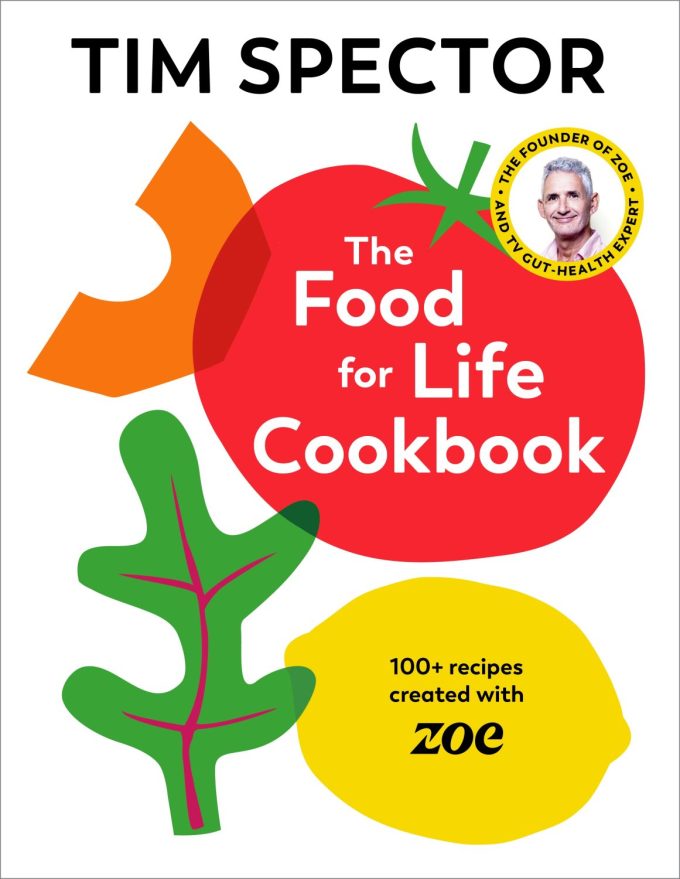I know Tim through his work as the original pioneer of microbiome research, and he is among the top 100 most cited scientists in the world. Over a decade ago, Tim’s work identified my gut as having extremely low microbial diversity—his guidance and encouragement helped me understand the specifics of how bread impacts the gut and mental health. His work is foundational to the Baking as Lifestyle Medicine approach to bread, and it reshaped how I taught by bringing research about the gut microbiome to the forefront of our understanding of bread.

On a personal level, I have much to be grateful for in Tim’s work. His analysis of my gut microbiome, which highlighted an extremely low gut microbial diversity that is associated with autism and ASD, paved the way for my diagnosis as neurodivergent. More importantly, it formed the foundation of my research into the impact of bread on the gut microbiome and mental health. However, my great affection for Tim stems from the alignment of our values. His work promotes empowerment by encouraging people to understand and personalise their diets to support their unique gut microbiome, transforming how they approach their health and well-being. This is reflective of my own approach to bread.
It’s easy to look at Spector’s successful business, Zoe, and think it was all handed on a plate, but it wasn’t. When Tim first started, he met with resistance. Traditional medical models viewed the human body in isolation, focusing on individual organs and systems. The idea that gut microbes could significantly impact health, including mental well-being, challenged the established narratives.
Tim’s work has been instrumental in my efforts to bring the gut microbiome to the forefront of bread and health.
Similarly, I faced many occasions when my gut instinct—no pun intended—and understanding of the microbiome was met with scepticism and doubt. It seems almost funny now, but when it came to teaching, I was quite literally unable to share what I knew about fibre, the gut, and diversity as fundamental to nourishing bread. When I began teaching, there were no comprehensive studies linking the gut microbiome to various health outcomes. Students from the medical field were hesitant to accept any theories about fibre, bread, or their impact on health without robust, large-scale evidence. It was meeting Tim all those years ago that provided the insight and tools I needed to continue developing BALM. The role of the gut is now much better understood in relation to bread. However, even now, on social media, Zoe and Tim’s work is being met with resistance from nutritionists and dietitians who adhere to outdated dietary advice.

Earlier this month, I was invited to attend the celebration of the Zoe team’s new book, which continues to transform how we think about food. This latest book, The Food For Life Cookbook, doesn’t disappoint. Listed on the Sunday Times bestseller list, this book is full of recipes that guide people in how to approach eating 30 different plant sources a week, without calorie counting. With fermenting and stepping away from ultra-processed foods and monoculture, it echoes many of the things I teach here at The Sourdough School. The Food For Life Cookbook is perfect for anyone looking to support their gut through food, with a strong focus on plant diversity, natural fermentation, and sustainable nutrition.
Why Tim Spector’s Approach to Bread Matters for Gut Health
Tim and his team have published several bread recipes in the new book, but they are not sourdough recipes. In this way, the bread they feature differs from our work at The Sourdough School, and from Tim’s personal approach to eating bread at home, which prioritises fermentation. That said, the Nuts and Seed Loaf, based on Sarah Britton’s recipe, is full of diversity and fibre, and it is delicious. Many of my students have asked if I was disappointed that The Food For Life Cookbook missed the opportunity to share our knowledge of fermentation in bread and if the recipes featured in it still make good bread. I think what is challenging for any writer trying to get people to eat well is that if it is too complicated, they won’t change their habits. Simple changes are achievable, and recipes in this book, such as the Nuts and Seed Loaf, are a great way to inspire people, as is the Seeded Soda Bread recipe.
My only reservation about the bread is that it is not fermented. The Seeded Soda Bread, with ingredients like rye, flaxseed, oats, chia, and psyllium husk, may be too much of a digestive challenge for anyone with IBS or a sensitive gut. All that fibre—while super healthy—can be pretty hard to digest, leading to bloating, gas, and discomfort. The seeds themselves also contain phytic acid, which can interfere with mineral absorption. For anyone with anaemia or magnesium deficiency, phytic acid binds to minerals and strips them out of your body. This is also the case with calcium, which is essential for bone strength. Individuals at risk of osteoporosis or with bone density issues should take this into consideration. Regular consumption of high-phytate foods might reduce calcium absorption, which is counterproductive for bone health. Eating these breads occasionally will not cause a problem, but if you are going to consume them daily, these are things you might want to take into consideration.
So, in short, while the bread in the new book is packed with nutrients, they might be a bit challenging for some people’s digestive systems, especially those who aren’t accustomed to eating so much fibre.
That said, I love how much Tim’s work echoes my own. Tim’s bread recipes are good for blood sugar balance, digestive health, and microbial diversity, but how you bake and eat bread is more than a recipe. What we share here at The Sourdough School is that baking is an invitation to connect with food in a way that prioritises health. Spector’s approach to bread encourages us to focus on feeding our gut microbes, supporting diversity, and reducing our intake of ultra-processed foods. Bread, when made with these principles, is a medium for nourishment.
So does Tim Spector have a good bread recipe?
Well, I’ve taken the liberty of creating one, in the same way that Tim makes his at home, and enhanced it by using both the Botanical Blend flour and the seed mix by Zoe. This is a Tim Spector inspired recipe from my 10-minute book, which was dedicated to Tim, and that is fermented and I hope that you will be inspired to have a go. Alongside this, I am delighted to share Tim Spector’s recipes for Miso Spinach Eggs and an Artichoke Stew from the new book. As with all recipes by Tim and the Zoe team, they are rooted in science and guided by Tim’s research. They are a powerful tool for health—a chance to avoid emulsifiers, enzymes, and ultra-processed bread, and to nourish yourself and support your microbiome with every slice.




 An Invitation to Join Dr Kimbell on the Bread & Guts Podcast
An Invitation to Join Dr Kimbell on the Bread & Guts Podcast
Leave a Reply